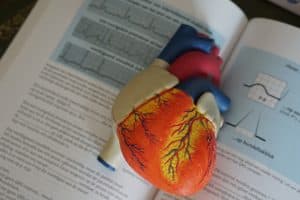
Updated: Merck buys antibiotics specialist Cubist
pharmafile | December 8, 2014 | News story | Sales and Marketing | Antibiotics, Merck, Novartis, cubicin, cubist, eumer
Merck has purchased US antibiotics maker Cubist in a deal valued at $9.5 billion.
The acquisition values Cubist at around $102 per share and signals that Merck, like several other big pharma firms, has renewed interest in the area of antibiotics as resistance becomes an ever-growing problem.
“Cubist is a global leader in antibiotics and has built a strong portfolio of both marketed and late-stage pipeline medicines,” says Kenneth Frazier, chairman and chief executive of Merck.
“Combining this expertise with Merck’s strong capabilities and global reach will enable us to create a stronger position in hospital acute care while addressing critical areas of unmet medical need, such as antibiotic resistance.”
Cubist specialises in antibiotic-resistant infectious diseases and has invested $400 million into R&D in the area in 2014 alone. Its goal is to release at least four new antibiotics by 2020, and it hopes that this will double its 2012 global revenues to $2 billion by 2017.
Its biggest-selling drug is Cubicin (daptomycin) – an intravenous antibiotic used to treat serious antibiotic-resistant infections like MRSA, which is marketed by Novartis in the EU. Its mode of action means there is no cross-resistance to existing classes of antibiotics and that it will take bacteria longer to become resistant to Cubicin itself.
The drug had sales of $967 million in 2013 and is expected to continue to grow over the next few years.
Larger pharma firms have moved away from antibiotics over the last few decades in favour of disease areas such as cancer, where drugs are priced higher and are used over a longer period of time – resulting in a greater return on investment.
The growing problem of antibiotic resistance has made the market a global health priority once again, however. Recently the World Health Organization said that world is heading “for a post-antibiotic era, in which common infections and minor injuries which have been treatable for decades can once again kill”.
The UK government has also warned of the threat of a new ‘dark age’ of medicine, and has launched a review into why so few anti-microbial drugs have been introduced in recent years.
Merck is not the only company that has been spurred by this news. GlaxoSmithKline has several antibiotics in very early development and one asset in Phase II; Sanofi has teamed up with German organisation Fraunhofer-Gesellschaft to research new natural antibiotics, and Roche is hoping that its in vitro diagnostics tests will yield results.
George Underwood
Related Content

Novartis shares new data about Fabhalta for IgAN treatment
Novartis has announced new results from a pre-specified interim analysis of its phase 3 APPLAUSE-IgAN …

TILT Biotherapeutics shares data on TILT-123 with Keytruda for ovarian cancer treatment
TILT Biotherapeutics has announced promising preliminary safety and efficacy data from its ongoing phase 1 …

FDA approves Merck’s Winrevair for PAH treatment
Merck, known as MSD outside of the US and Canada, has announced that the US …








